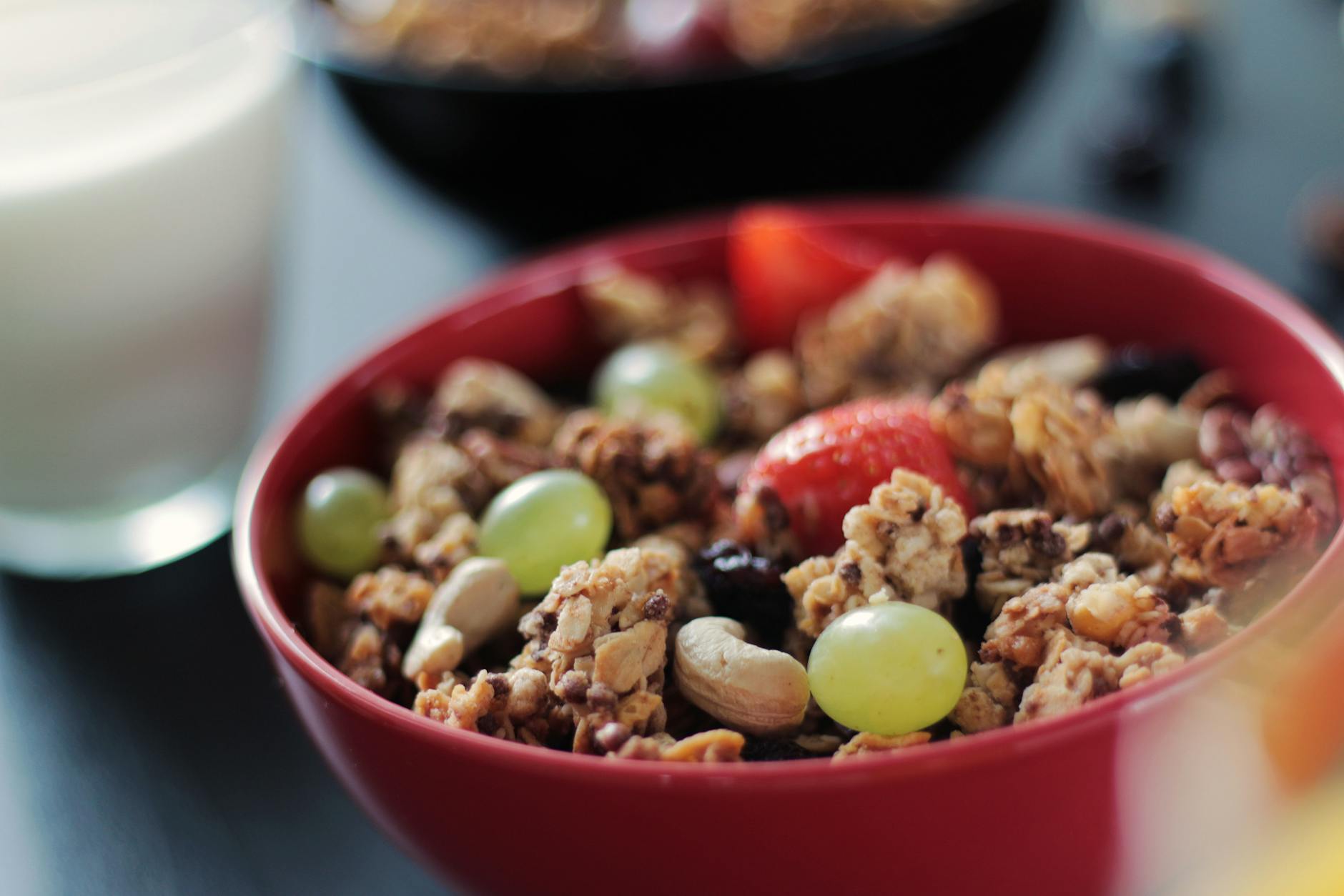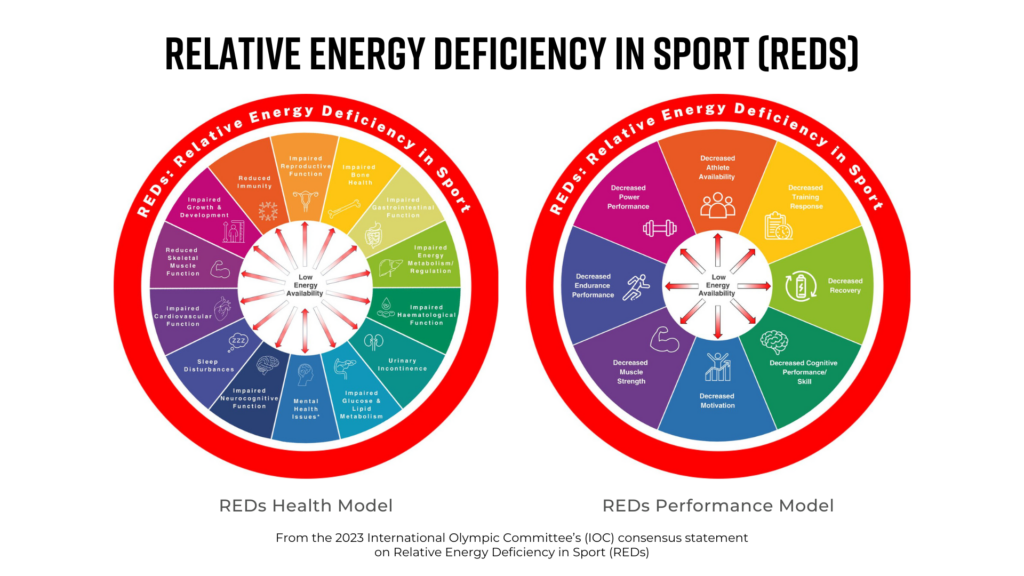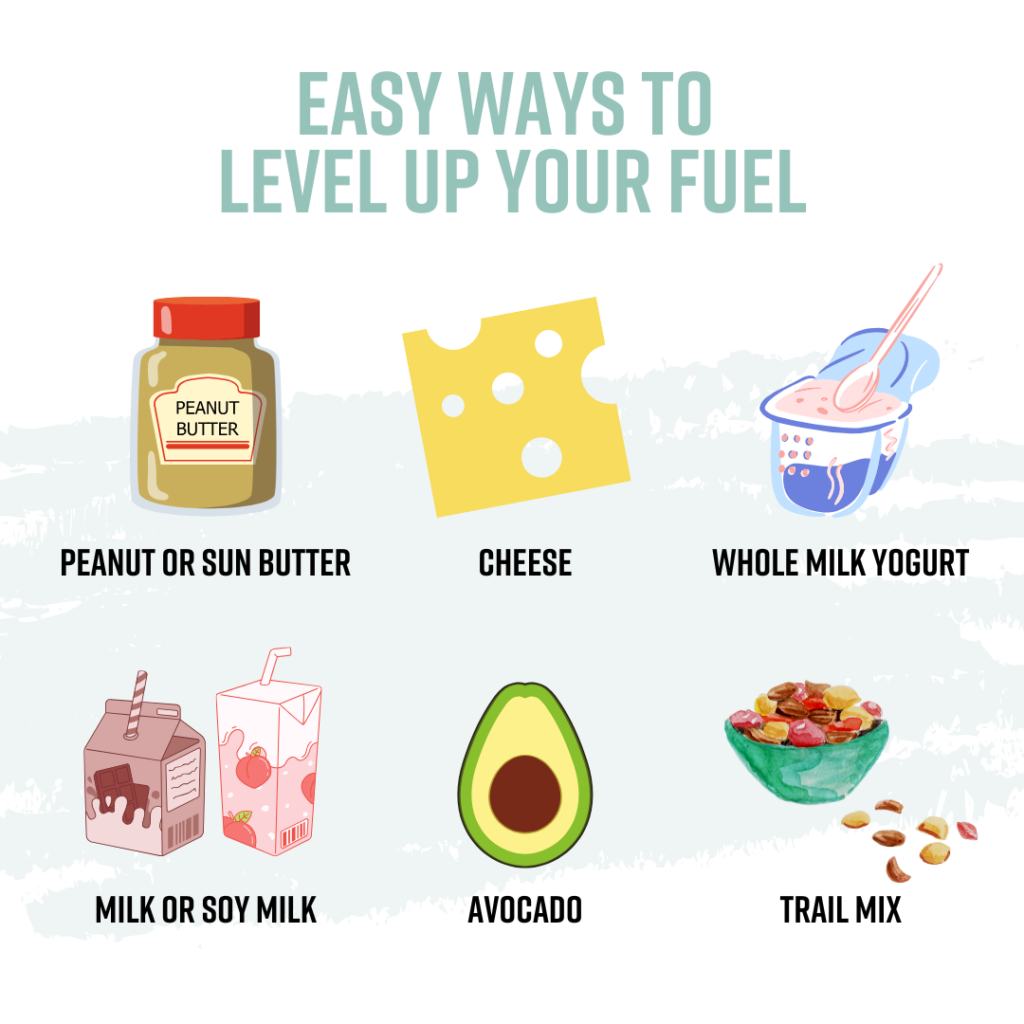The Blog
Relative Energy Deficiency in Sport (REDs) and how it Impacts Athletes

November 20, 2024
As a high school athlete, your body needs a significant amount of energy to power through training and games, plus additional energy for your growth and development. Sometimes athletes don’t get enough fuel to meet these high energy needs, and this can lead to a condition called Relative Energy Deficiency in Sport, or REDs. Let’s dive into what it is, its symptoms, and how to fuel to avoid REDs.
What Is Relative Energy Deficiency in Sport (REDs)?
REDs is caused by prolonged Low Energy Availability (LEA). LEA is an energy imbalance – when the energy you get from food isn’t enough to support both your athletic activity and basic body functions, like maintaining healthy bones, muscles, and hormones. This energy deficiency affects your performance and can lead to serious physiological and psychological challenges if you ignore the symptoms.
Are All Athletes at Risk for REDs?
REDs can impact any athlete but athletes participating in sports where weight and body composition play a critical role—such as running, gymnastics, and wrestling—face an increased risk. Although females report more symptoms of REDs, it’s important to note that REDs is not exclusive to female athletes. Male athletes can also be impacted by low energy availability.
Recognizing the Signs of REDs
REDs impacts many different systems in the body, so it is important to note that symptoms can vary between athletes.
- Decreased Athletic Performance: You may notice reduced endurance, strength, or speed, even if you’re training hard.
- Fatigue: If you’re feeling unusually tired, it might not just be due to lack of sleep. Energy deficiency can lead to chronic fatigue, making it harder to train consistently.
- Frequent Illness or Injury: Low energy availability can weaken your immune system, so you’re more likely to get sick. You might also be more prone to injuries like stress fractures.
- Mood Changes: Feeling more irritable, anxious, or down? Hormonal imbalances caused by REDs can impact your mood and mental health.
- Irregular Menstrual Cycles (for Female Athletes): Missed or irregular periods are a common sign of REDs and are a red flag that your body may not be getting enough fuel.
- Difficulty Concentrating: Struggling to focus in school or during practice? Your brain requires a lot of energy too, and when it doesn’t get enough, your concentration can suffer.

Causes of REDs
REDs often boils down to a mismatch between the energy you consume and the energy you burn over an extended period of time. Here are some common causes:
- Increased Training Volume: Training harder or more frequently can increase your energy needs without you realizing it. Pre-season is a great example of when training intensity and duration increases for more athletes.
- Unintentional Undereating: Some athletes may not eat enough simply because they underestimate how much they need.
- Dietary Restrictions (Disordered Eating): Avoiding certain food groups can make it challenging to get enough calories and nutrients.
- Body Image Pressures: High school athletes may feel pressure to look a certain way, which can sometimes lead to restrictive eating habits.
How to Treat REDs: Getting Back on Track
The good news is that REDs can be managed with the right strategies and support.
- Increase Overall Energy Intake: Fueling more frequently with nutrient dense foods is the first step. Make sure you are eating enough carbohydrates, protein, and essential fats to meet your energy needs.

- Making the Foundation of Your Plate Carbohydrates: Athletes need a lot of carbohydrates! One of the biggest goals for athletes I work with is to increase their carbohydrate intake at all meals and snacks.
- Eat Consistently During the Day: The timing of your meals and snacks matters! Building a fuel strategy will help to increase your energy, improve your performance, and support your overall health.
- Build a Supportive Team: You may find adding fuel to be a challenge. Talk with your parents or coaches about finding additional support. There may be a need to talk to a therapist who works with athletes and understands REDs. Work with a Registered Sports Dietitian. At SM Nutrition I help athletes develop personalized nutrition strategies that support their training and overall health. My goal is to build your confidence in fueling in my Elite Fuel 1:1 coaching program.
REDs is a serious condition, but there is good news – it’s preventable and treatable. By paying attention to your body’s needs, eating consistently, and working with a Registered Sports Dietitian, you can remain a competitive athlete. Remember, fueling your body well is just as important as training hard.
Hello There. I found your blog the usage of msn. That is a very neatly written article. I’ll be sure to bookmark it and come back to read extra of your helpful information. Thanks for the post.
I will definitely comeback.